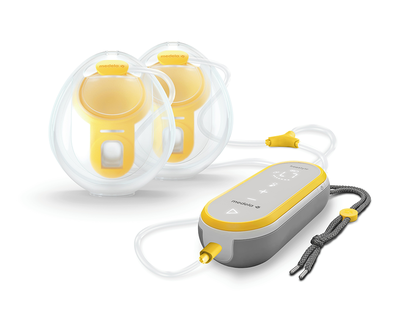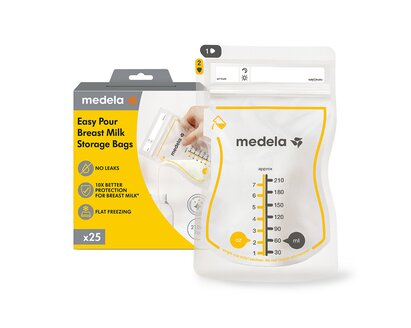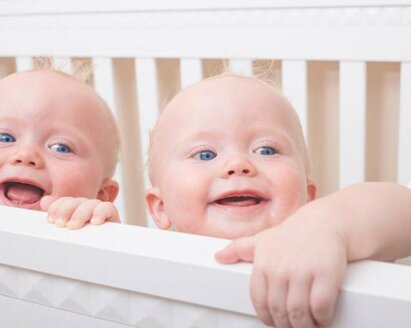This curiosity is natural and should be encouraged. If you help your older child to understand what to expect, they’ll be more relaxed and willing to help “take care” of their new baby brother or sister.
Here are a few things to consider before and after your new baby is born.
Here's what to consider BEFORE your new baby is born
Should You Talk with Your Child About the Pregnancy?
Your new baby is going to have an impact on your older child in many ways. For a long time, your first child was the centre of attention in your family. Now they have another sibling to “compete” with. Older children often want to protect and take care of their younger siblings, but they also might feel a little jealous.
Children also need to have their expectations managed regarding what their new baby brother or sister will be like when they are born. Your older child needs to understand that their new sibling won’t be ready to play football with them right away.
In fact, explain that babies will need help from the entire family just to grow and learn in their early months of life. They will need their big brother or sister to treat them with care!
Another important message to share with your older child is that, while your new baby will take a lot of your time, they are still important. You love them more than ever. And, in fact, their role in the family is getting even more important.
As a big brother or sister, they have new responsibilities and new possibilities. You can mention they will get to go on special outings or enjoy special privileges that come with being the oldest child. Perhaps you can even start doing some special more “grown up” things together before the baby is born.
When Should You Tell Your First Child that Another Baby is on the Way?
When you should tell your child about your pregnancy depends on their age. Generally speaking, 4-year-olds are more ready to hear about pregnancy than 2-year-olds. There are no hard and fast “rules,” but, it’s usually better to wait until the end of your first trimester of pregnancy to start getting your other child excited.
Elementary school-aged children can be told as soon as you and your spouse are ready; don’t feel like you have to keep a secret from them if you want them to share in your excitement.
Ultimately, how much you explain about your pregnancy is a personal decision. But, whatever you decide to communicate, do it using simple words and one-sentence explanations that are easy to understand.
Many mums find it fun to try to communicate complex concepts to their kids in simple terms. Is pregnancy like a flower growing? Or, perhaps you see it more like a butterfly in its cocoon?
How Should You Tell Your Child About the New Baby?
The big reveal should be fun. Make it an exciting surprise. Be creative and relaxed. Involve everyone in the family to create a sense of shared purpose and excitement from the very beginning. You might consider using an ultrasound photo to make the story real – you can take them to the clinic and show them to your child to show them what is going on in mum’s belly.
Young children respond exceptionally well to visual learning, so you might want to sit down with your toddler to watch an age-appropriate video about pregnancy. Maybe you can involve your toddler in sharing the news on social media – for example, by making a photo of your toddler holding a sign saying, “I’m going to be a big brother/big sister!”
Read a book together and help your child relate to what they’re reading in the story. Another idea is to start a scrapbook with your child, cataloguing the development of the new baby. Then you can add a picture of their little brother or sister when they are born.
Things to Talk About and Do with the Older Child
Remind your older child that a little baby does basically 3 things – feed, sleep and cry. As a result, their new baby brother or sister is going to take a lot of your time. Tell stories about how your first child’s time as a baby and how you took care of them.
You can discuss all the cool things that older children get to help out with – helping mum around the house, cleaning and shopping for food.
Don’t forget to explain breastfeeding. Your older child may feel a bit jealous of all of the time that you are spending with their younger sibling. So, it’s important that they understand the purpose of breastfeeding and a little bit about how it works. You may even want to bring your older child to an Australian Breastfeeding Association (ABA) meeting to help them understand the process a bit better.
It is important to humanise your new baby. Let your toddler touch your tummy to feel your baby kicking. This way they can start building a relationship before the baby is born.
Here's what to consider AFTER your baby is born...
The arrival of a new baby is one of the most joyful and exciting times for a family, but it also brings new challenges. Here are a few tips for managing the transition period with your older child.
Juggling – Get Ready for Some Pushback
Many children have trouble with new situations and patterns. As a result, it’s natural to expect some pushback and additional emotions at the beginning. After all, your first child’s world is changing in some dramatic ways – and chances are, they probably liked things just the way they were!
Until your new baby arrived, your eldest was the only focus of attention for you and your partner. No matter how much you do to prepare your child for the arrival of their baby brother or sister, the full reality of the situation won’t hit until they arrive. Now, all of a sudden, mum and dad have a new person in their lives that they need to pay attention to.
So, don’t be surprised if you see some acting out or even disobedient behaviour from your older child. The important thing is to stay calm. Show your older child how much you love them, but, be firm in your application of the new rules. If your child sees that they can manipulate you into spending less time with the baby, they almost certainly will.
Activities to do with Your Older Child While Your New Baby is Breastfeeding
Breastfeeding a new baby, while caring for a toddler, can be a big challenge, especially if you are home by yourself. Here are a few tips to make breastfeeding easier when you are also watching a toddler.
Most importantly, get organised – reorganise your breastfeeding sanctuary and childproof it with the needs of your toddler in mind. Keep books and toys nearby. You may even want to let your toddler turn the pages of a favourite book, while you ready and breastfeed your infant.
Many mums like to snuggle and talk with their toddler while feeding. This shows them that breastfeeding time can still be “special time with Mum,” even though you’re feeding the baby at the same time.
You can play games like “I Spy,” or sing songs together. Enjoy the funny things that might happen. During breastfeeding time, some toddlers like to pretend-breastfeed their dolls or stuffed animals (or even trucks!)
For your child’s safety, and your sanity, it’s important to keep your toddler contained and in the same room with you while you’re breastfeeding. Close the door or use a baby gate, so that your toddler can’t “escape” and play in the toilet while you’re breastfeeding or resting.
Is it Possible to Breastfeed a Toddler and Baby at the Same Time?
Breastfeeding a toddler and a newborn at the same time (tandem breastfeeding) is possible. If your child is still breastfeeding and you expect to tandem feed, explain to them how everything is going to work. Point out that the baby will need to feed a lot more since he can’t eat other foods, like they can. For more information, check out ABA’s article on tandem breastfeeding.
What if Your Older Child (Who has Already Weaned) Asks to Nurse Again?
One of the bittersweet moments of motherhood is when your child breastfeeds for the last time. On the one hand, your child is transitioning to a new phase of life. On the other hand, many mums miss the special time that they had with their children, while breastfeeding. Sometimes it can be difficult to let go. Even if your toddler has already weaned, it’s common for them to ask to breastfeed at some point after the new baby arrives.
There is no easy answer here. Just do whatever you feel comfortable with. Some mums are happy to feed their previously weaned children again – it can be a comforting experience. But, if you don’t want to go down the path of having to “unwean” your toddler, set expectations upfront that your “breastmilk is for the baby.” Make them feel grown up and explain that they are ready for new foods and new experiences with you.













































